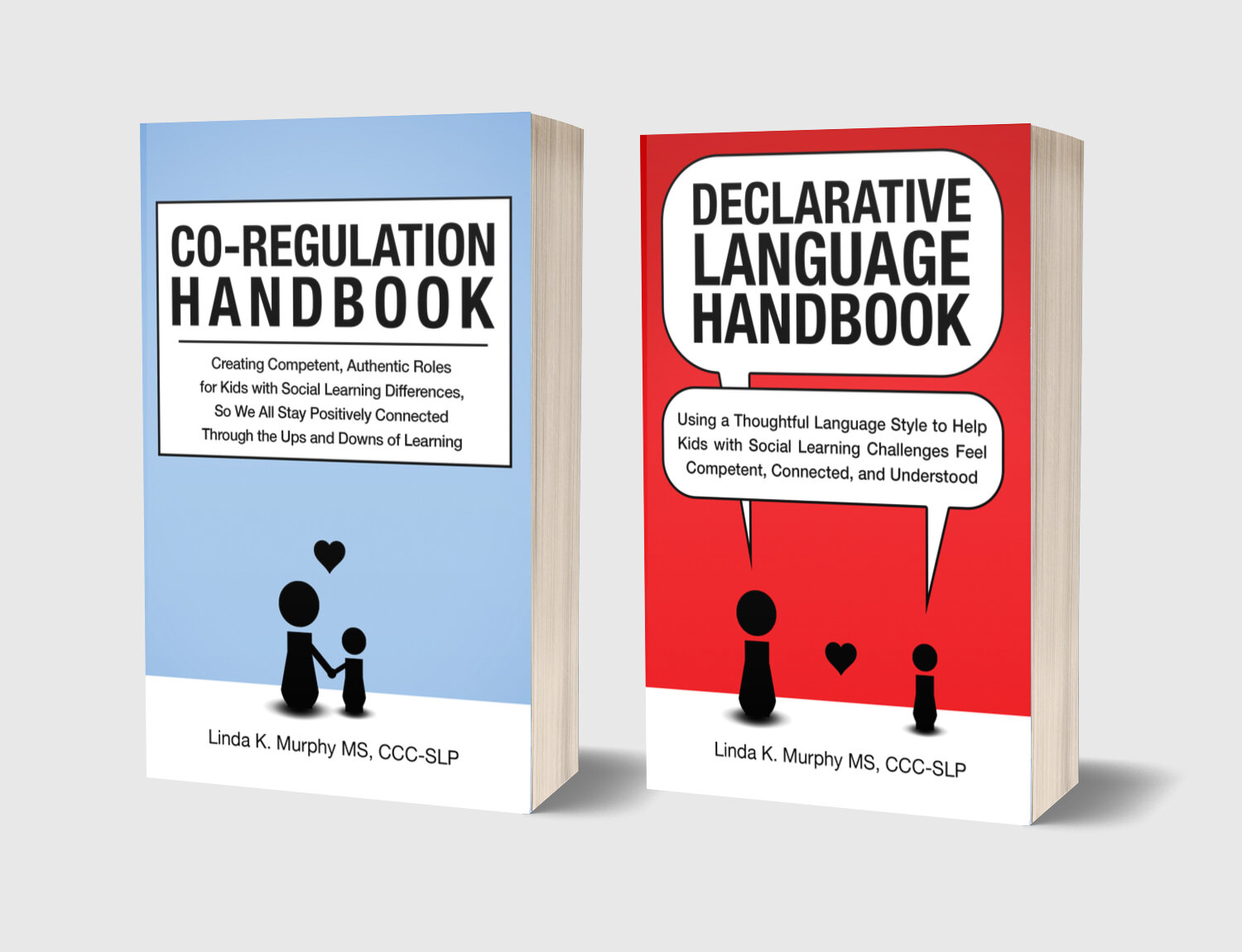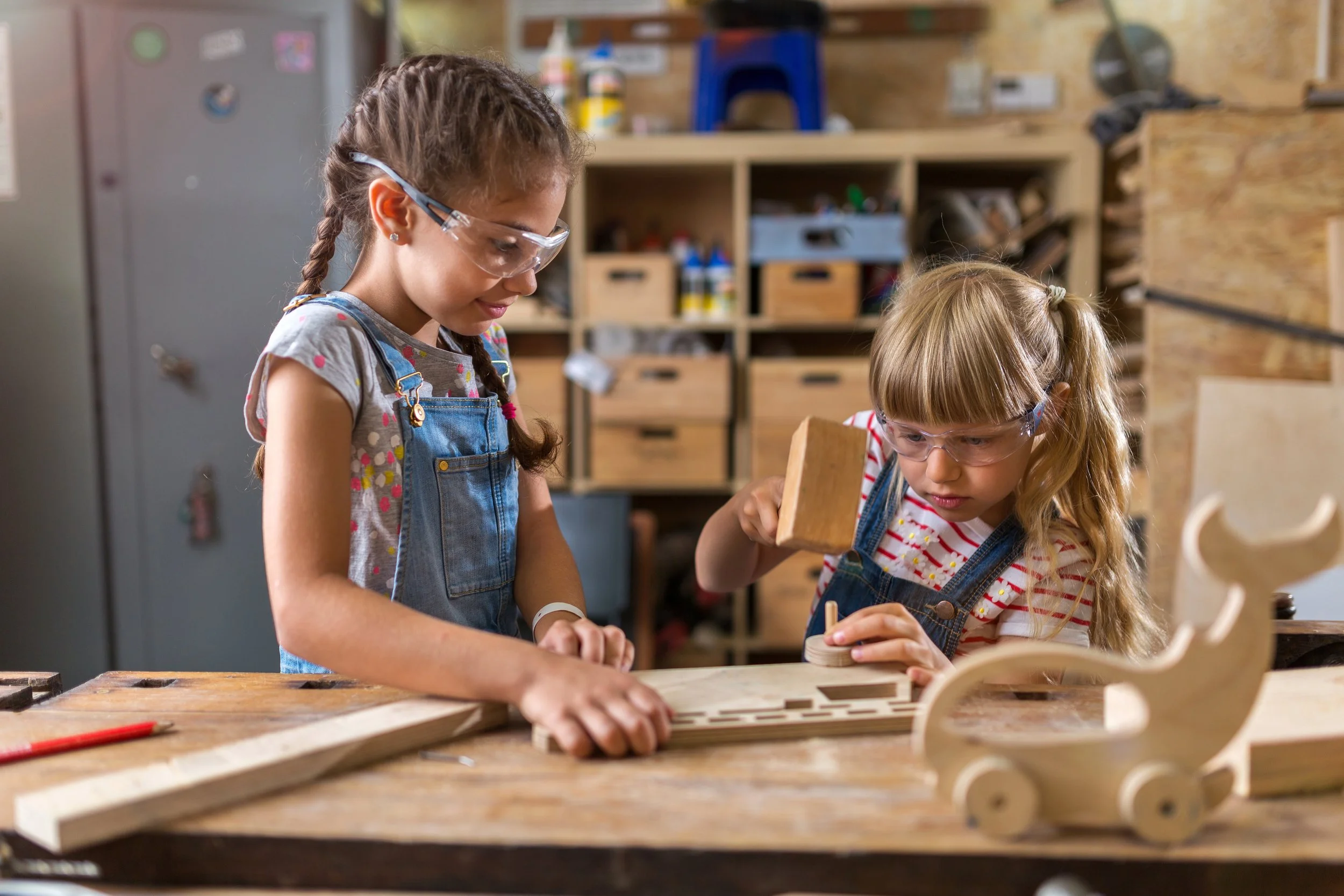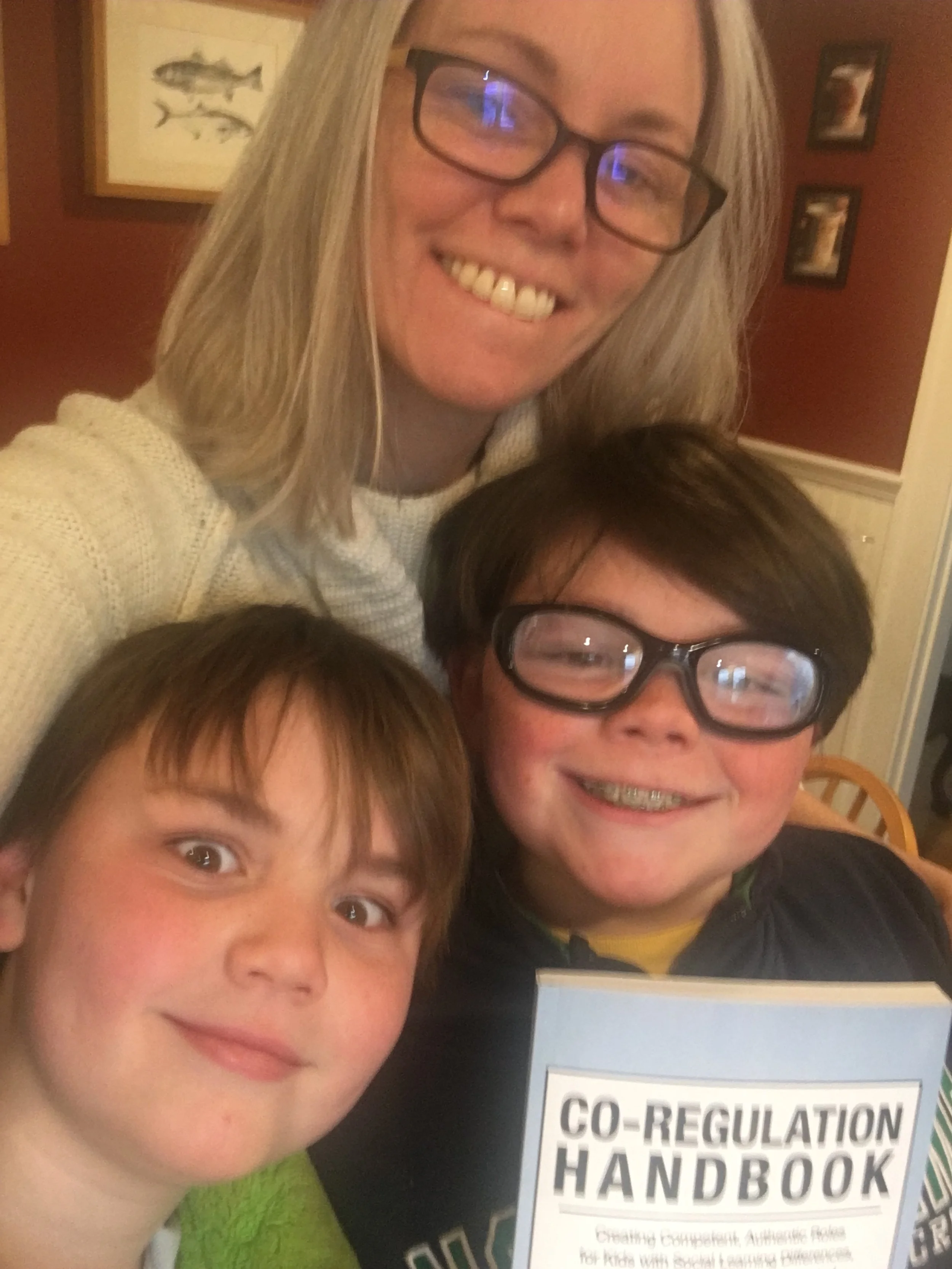Setting Limits - Part 2
Last week, I introduced the topic of setting limits.
To briefly recap, we set limits to help kids stay safe. This may be physical safety, safety connected to relationships, or even safety related to negative impacts on mental health. At times, kids need us to set limits, even though they may not be happy about it. Thus, it is important to find a way to communicate limits that is nurturing and respectful, and leaves space for kids to work through any negative feelings. This is where declarative language comes in!
This week I want to pull in two ideas related to co-regulation: framing and adjusting complexity (Chapter 6 and Chapter 7 of Co-Regulation Handbook).
Here is the way I am thinking about all of this together.
We use declarative language to communicate limits in the moment and/or to communicate limits after we have decided upon them.
In contrast, co-regulation is the way we quietly set limits behind the scenes!
What does this mean exactly?
In Co-Regulation Handbook, I talk a lot about the idea of “competent roles.” This means, we understand and are aware of where our learner may be in their developmental and regulatory trajectory, at any given moment, and from this knowledge, (1) place them in situations that keep them competent (“framing”) and (2) offer challenges (i.e., add in elements, or add “complexity”) when we sense they are ready.
When kids are in situations or contexts that are not competent for them, they can get dysregulated, and get into trouble (“challenging behaviors”). Then, we find ourselves backpedaling to set a limit.
Stopping the challenging behavior becomes the focus, rather than creating competence.
However, if we can successfully think ahead, or even think on our feet in the moment to make small adjustments in the environment when we see this is needed, we can help kids stay competent and regulated. This quiet creation of competent roles and making adjustments in complexity are less visible limits, but limits, nonetheless.
This is because they are decisions that we make to keep kids safe!
Here is an example of this process, related to one “complexity element.”
The Number of People
For some kids, a busy room and/or peer interactions with more than 2 or 3 kids, gets overwhelming fast. They may get dysregulated and impulsive, and their actions become unsafe. For example, maybe they throw or hit or yell or bolt or argue or push or swear. Am I right?
We can quietly create safety for these learners by thoughtfully placing them in a social dynamic that is competent for them. For example, maybe there is a group project in your classroom, and you are deciding on how to split up your students. Or you are planning a birthday party for your child and deciding who to invite. For each of these situations, it is important to create the group size that will be most competent for each child or student, regardless of what others are doing.
If one student is at their best in a dyad (a group of two), then see if you can make that happen rather than place them in a group of three or four where they may fail, and interactions turn negative. Or, if you know your child does best with only one or two friends at a time, then create a special birthday event with only one or two other kids. That way, everyone is more likely to walk away with positive memories of the special day, and stronger connections with each other.
For some kids, a group of 2 is just right. This is okay.
By creating opportunities at the place where kids are competent in this regard, you will be more able to help them build important skills such as authentic reciprocity, perspective taking, problem solving, and self-regulation, while also creating more room to foster resilience, emotional connection, and positive relationships. And, when we give kids opportunities to strengthen skills at the place where they are competent, they will be better able to access those skills as environments increase in complexity.
Other complexity elements, which you can read about in Co-Regulation Handbook, include our space, the materials we are using, decision-making opportunities within an activity, and our language. Just as we can consider adjusting the number of people involved in what we are doing, we can consider how to adjust these other four elements of complexity, to create competence for each child, and therefore safety.
So…. setting limits is important and necessary because it keeps kids safe. We can set limits with our language OR we can quietly set limits behind the scenes. You can use both ideas interchangeably and fluidly as well, depending on the context and depending on the child. There are many ways to create competence and safety once you become aware of the tools and choices you have as the guide in each moment!
Some news!
My proposed session for the ASHA Convention Virtual Library, titled Co-Regulation: Creating Competence, Balance and Positive Connection Through the Ups and Downs of Learning (Session 2032V), has been accepted, and will be available from November 10th - 28th. I am excited to get this presentation out there for other SLP’s, but it also means I have to buckle down and get it done! I may need to take a couple weeks off from my Sunday Snippet (i.e., reduce complexity in my own life!), so I can focus on this work. Please know that I will be back as soon as I can!
Have a great week!
Want to learn more about using declarative language & co-regulation in real life?
Join our October Workshop! We still have a few spots and would love to meet you.
If you like my Sunday Snippets of Support, you can receive them directly to your inbox here.










